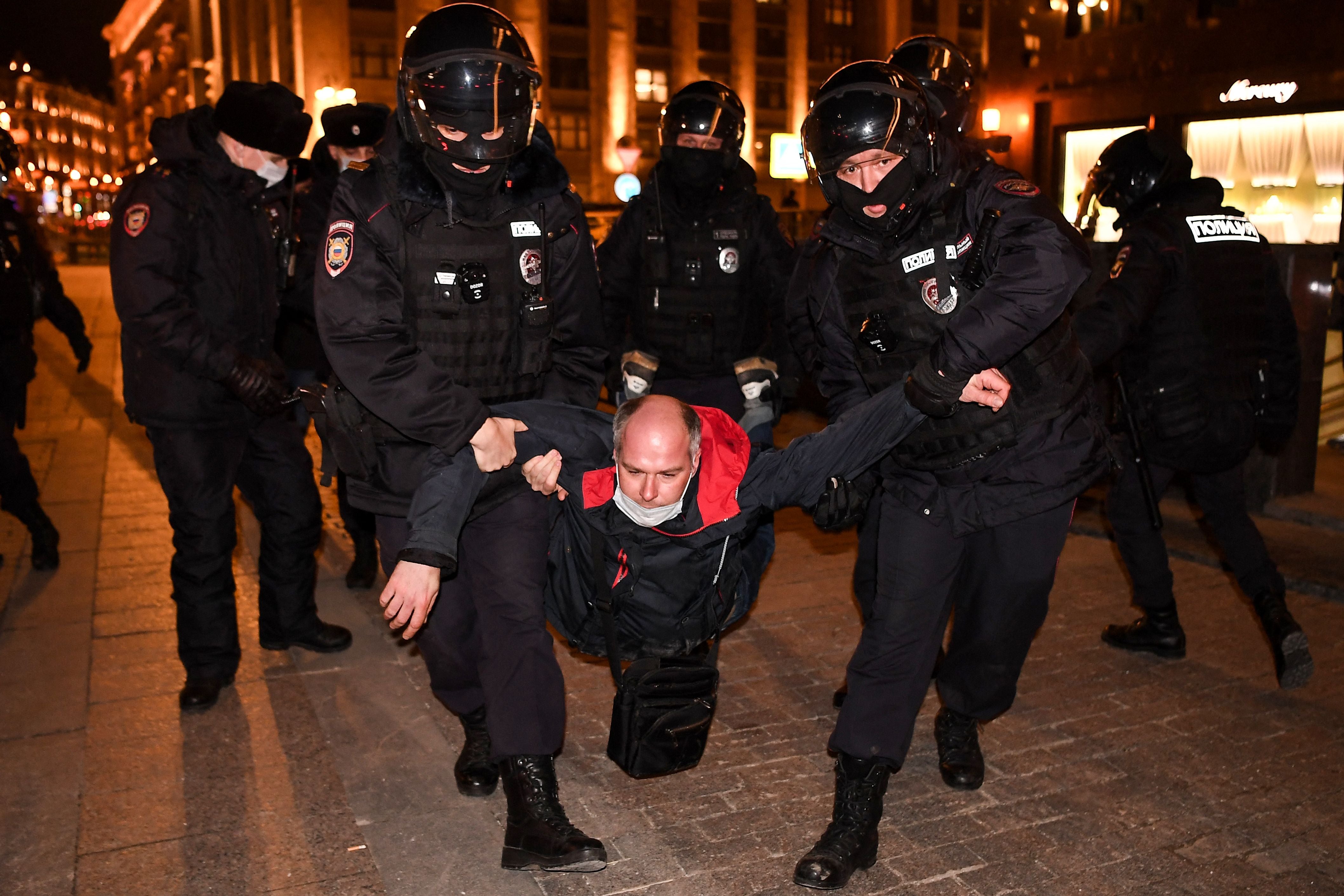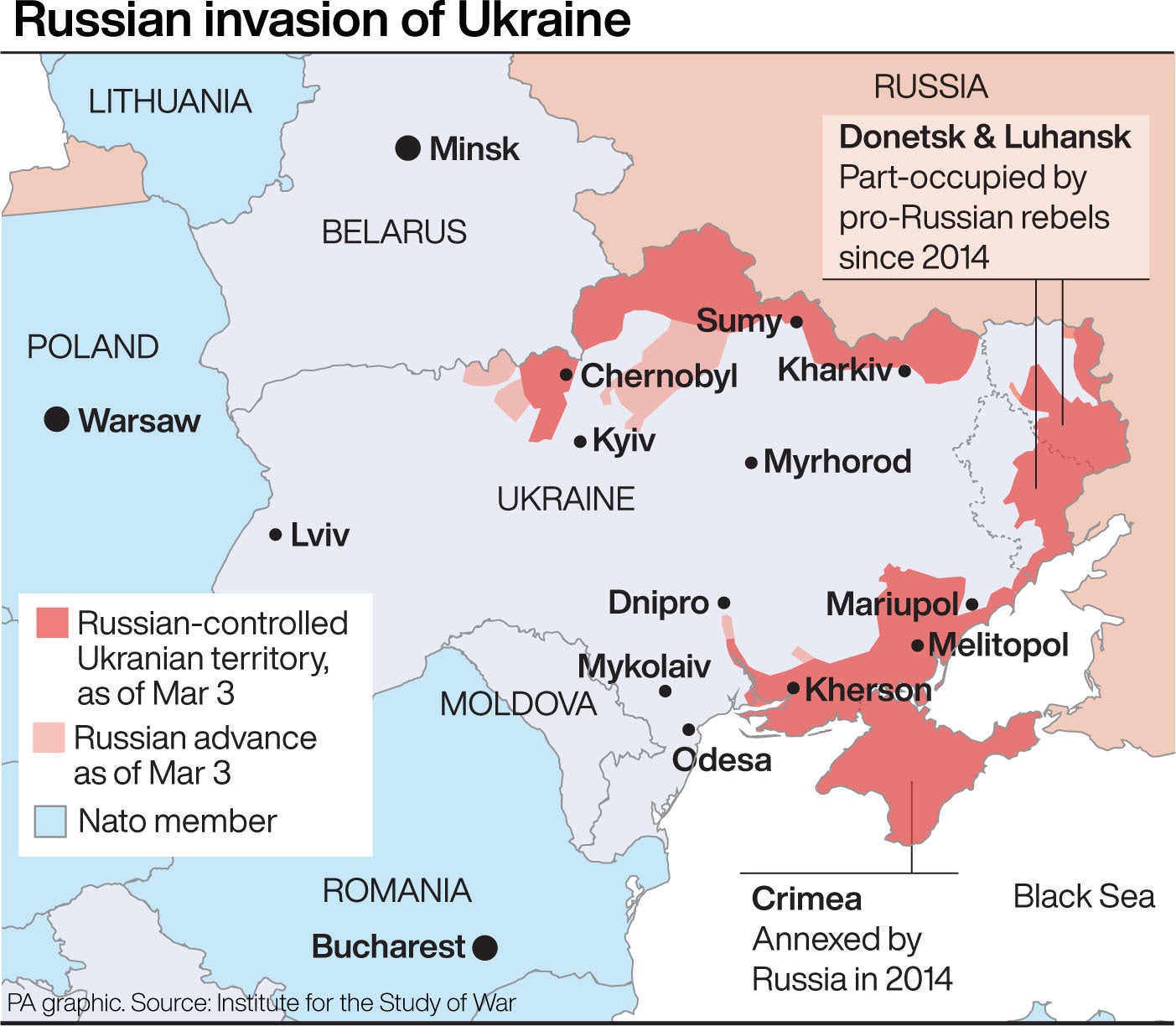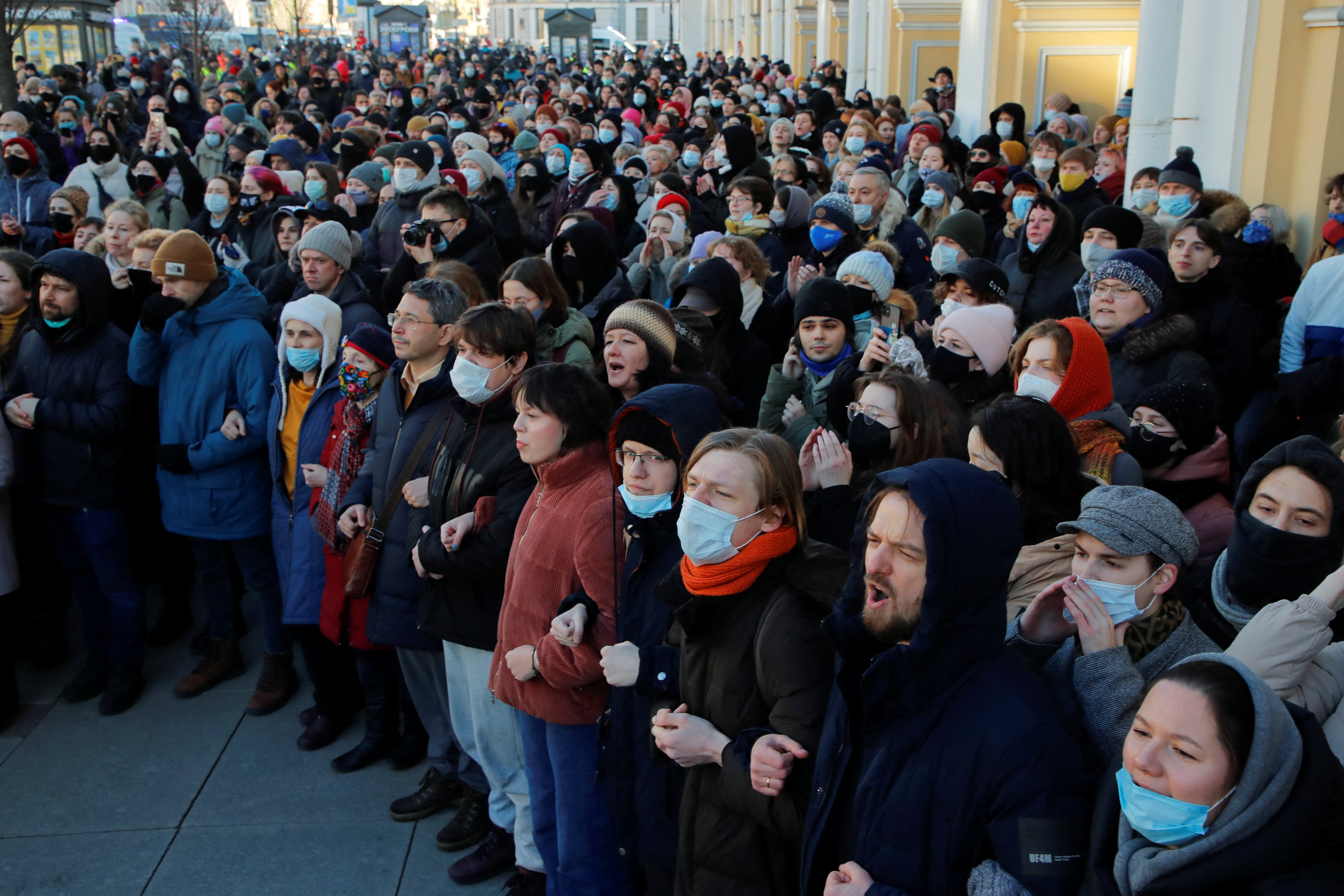Putin’s crackdown on dissent: Moscow blocks BBC and Facebook over Ukraine war
The blocks on foreign media came as Nobel Peace Prize-winning Russian editor says he will remove material on the war

Your support helps us to tell the story
From reproductive rights to climate change to Big Tech, The Independent is on the ground when the story is developing. Whether it's investigating the financials of Elon Musk's pro-Trump PAC or producing our latest documentary, 'The A Word', which shines a light on the American women fighting for reproductive rights, we know how important it is to parse out the facts from the messaging.
At such a critical moment in US history, we need reporters on the ground. Your donation allows us to keep sending journalists to speak to both sides of the story.
The Independent is trusted by Americans across the entire political spectrum. And unlike many other quality news outlets, we choose not to lock Americans out of our reporting and analysis with paywalls. We believe quality journalism should be available to everyone, paid for by those who can afford it.
Your support makes all the difference.Russia has threatened to put people in jail for up to 15 years for spreading “fake” news about its invasion of Ukraine as Moscow went to war against any criticism of its actions by blocking access to foreign media outlets, including the BBC, and Facebook.
Russia’s parliament on Friday backed a law to criminalise “fake” news as Moscow tightened its vice-like grip on any dissent. The draconian law is expected to take effect as early as Saturday.
The law passed by parliament envisages sentences of up to three years or fines for spreading what authorities deem to be false news about the military, but the maximum punishment rises to 15 years for cases deemed to have led to “severe consequences”.

“It is possible that by tomorrow, its rules will force those who lied and made statements discrediting our armed forces to bear very grave punishment,” Vyacheslav Volodin, chairman of the parliament, said.
“I want everyone to understand, and for society to understand, that we are doing this to protect our soldiers and officers, and to protect the truth.”
Hours later, Russia’s state communications watchdog, Roskomnadzor, went even further by issuing an order to completely block access to Facebook in Russia.
The clampdown came as President Vladimir Putin claimed, in a call with German Chancellor Olaf Scholz, that alleged ongoing air strikes of Kyiv and other large cities are “gross propaganda fakes”, despite Ukraine claiming that more 2,000 civilians have been killed in a war in little over a week of hostilities.
Demonstrations have taken place in more than 100 Russian cities over the last week and more than 6,500 people have been arrested during the protests, according to the OVD-Info project - an independent Russian rights group - as Mr Putin struggles to control the narrative around a war that many observers believe is not going as he planned.

Earlier on Friday, Roskomnadzor said it was blocking five media organisations based abroad which publish news in Russian, including the BBC.
In response to the authorities blocking international media, the BBC announced it was temporarily suspending its journalists’ work in Russia. BBC Director-General Tim Davie said the legislation “appears to criminalise the process of independent journalism”.
“The safety of our staff is paramount and we are not prepared to expose them to the risk of criminal prosecution simply for doing their jobs,” he said.
The BBC’s Russian-language news service would continue to operate from outside Russia. Access to BBC websites in Russia had already been restricted. Other international news outlets including Deutsche Welle, Meduza and Radio Liberty have also been impacted.
Russian authorities have repeatedly hit out at reports of Russian military setbacks or civilian deaths in Ukraine as “fake”.
State media outlets refer to Russia’s invasion of Ukraine as a “special military operation” rather than a “war” or “invasion”.
Also on Friday, the Russian editor-in-chief who won the Nobel Peace Prize just five months ago, Dimitry Muratov, announced his Novaya Gazeta newspaper, would remove material on the war because of a growing threat to journalists and citizens “who disseminate information about hostilities that differs from Defence Ministry press releases”.
Novaya Gazeta’s decision came a day after the Dozhd (Rain) TV station stopped broadcasting after coming under pressure for its coverage of the invasion. Instead, the channel showed a performance of a performance of Tchaikovsky’s Swan Lake, which used to be shown when Soviet leaders died.
Russian online website Znak announced it was closing Friday morning, shortly after the parliament approved the draft bill. On Thursday, Russia’s top independent radio station Ekho Moskvy was closed.

On Friday, the authorities raided the offices of Memorial, one of Russia’s oldest and most prominent human rights organisations.
According to Memorial members, police didn’t provide any explanation and there were no warnings.
“The police refused to let me and the lawyer in without explanation, and when I tried not to let in the reinforcement officers who arrived in bulletproof vests and masks, they threatened to use force if I did not let them in,” the chairman of International Memorial Yan Rachinsky said.
“This is the level of justice today in the capital of Russia.” Another leading human rights group, the Civic Assistance, also saw its Moscow office raided on Friday.



Join our commenting forum
Join thought-provoking conversations, follow other Independent readers and see their replies
Comments